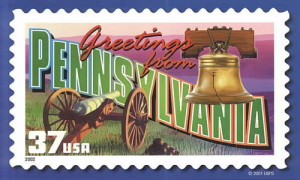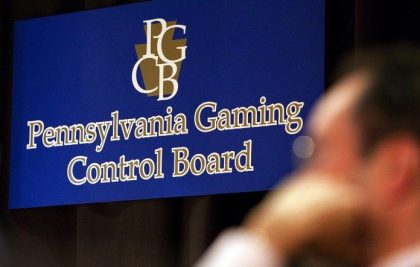Pennsylvania Gaming Control Board Announces Online Gambling Self Exclusion Program
The Pennsylvania Gaming Control Board (PGCB) has announced the launch of a “self-help tool” allowing potential online gamblers to voluntarily exclude themselves from participating in the Keystone State’s new online gaming (iGaming) activities, including online sports wagering, online casino games, and online poker.
The announcement comes as the very first of these online-gambling services, online sports betting as offered by Philadelphia’s SugarHouse Casino, has come online in a soft launch after receiving the go-ahead from PGCB regulators. Officially, July 15, 2019 remains the target launch date for all of the state’s casino’s new regulated online offerings, though following the approval of the SugarHouse Sportsbook portion of playsugarhouse.com, that casino’s Pennsylvania online home, more soft-launch approvals for other licensees are likely to follow in the coming days and weeks.
 A PGCB statement on the self-exclusion program’s launch notes that it is modeled on the parallel self-exclusion program that the state has operated in conjunction with the state’s 12 licensed casinos. According to the PGCB, that land-based program has assisted thousands of Pennsylvania’s gamblers by allowing them to voluntarily ban themselves from gaming in Pennsylvania’s casinos. The iGaming Self-Exclusion Program is separate from the live-casino program, though it offers the same length-of-exclusion terms: one year, five years, or for life.
A PGCB statement on the self-exclusion program’s launch notes that it is modeled on the parallel self-exclusion program that the state has operated in conjunction with the state’s 12 licensed casinos. According to the PGCB, that land-based program has assisted thousands of Pennsylvania’s gamblers by allowing them to voluntarily ban themselves from gaming in Pennsylvania’s casinos. The iGaming Self-Exclusion Program is separate from the live-casino program, though it offers the same length-of-exclusion terms: one year, five years, or for life.
Once implemented, the self-exclusion cannot be revoked until it expires, and for lifetime self-exclusion, it’s permanent. According to the PGCB, “All Commonwealth on-line gaming sites must refuse wagers and deny gaming privileges to all persons on the iGaming Self-Exclusion list, as well as refuse any player club membership, complimentary goods and services, and other similar privileges; and, ensure that persons on the iGaming Self-Exclusion list do not receive solicitations, targeted mailings, telemarketing promotions, player club materials or other promotional materials relating to iGaming activities.”
Those interested in excluding themselves can do so either online or in person at one of the PGCB’s offices. The state will not allow people to sign up individuals other than themselves for the program.
Additional details about the program have already been made available. Would-be gamblers can block themselves from all of the state’s online gambling services, a few, or just one, and they can also impose various spend limits on their gambling behavior. Within the link family already published by the PGCB are two brochures, one offering a FAQ-based approach to the self-exclusion program in general, and another detailing how self-imposed limits work.
Self-excluding Pennsylvania residents must provide all of the following:
- Name, including any aliases or nicknames
- iGaming account information (when available)
- Date of birth
- Address of current residence and/or P.O. BOX
- Telephone number
- Social Security number
- Email address
- Government-issued photo identification such as a driver’s license or passport
Once self-excluded, the process is designed not only to block the gambler from the designated online offerings, but also to keep the sites from sending further marketing opportunities. According to the PGCB information, “iGaming sites must refuse wagers from and deny gaming privileges to any self-excluded person; deny check cashing privileges, player club membership, complimentary goods and services, junket participation and other similar privileges and benefits to any self-excluded person; ensure that self-excluded persons do not receive junket solicitations, targeted mailings, telemarketing promotions, player club materials or other promotional materials relating to iGaming
activities; and may exclude self-excluded persons from their physical properties and/or their iGaming sites in other jurisdictions.
“After a person is placed on the iGaming Self-Exclusion List, a person will be unable to participate in iGaming activities in PA. Individuals will still be able to withdraw their funds from each iGaming site. A self-excluded person who has gambled while on the self-exclusion list may not collect in any manner or in any proceeding any winnings or recover any losses arising as a result of any gaming activity for the entire period of time that the person is on the Self-Exclusion List.
“Any winnings issued to, found on or about or redeemed by a self-excluded person shall be remitted to the PGCB and are used towards its responsible gambling programs. If a person violates the terms of self-exclusion, they may be subject to arrest.”
More information about Pennsylvania’s iGaming Self-Exclusion Program is available via a newly-installed link under the QuickLinks section on the PGCB’s home page at https://gamingcontrolboard.pa.gov.




















COMMENTS